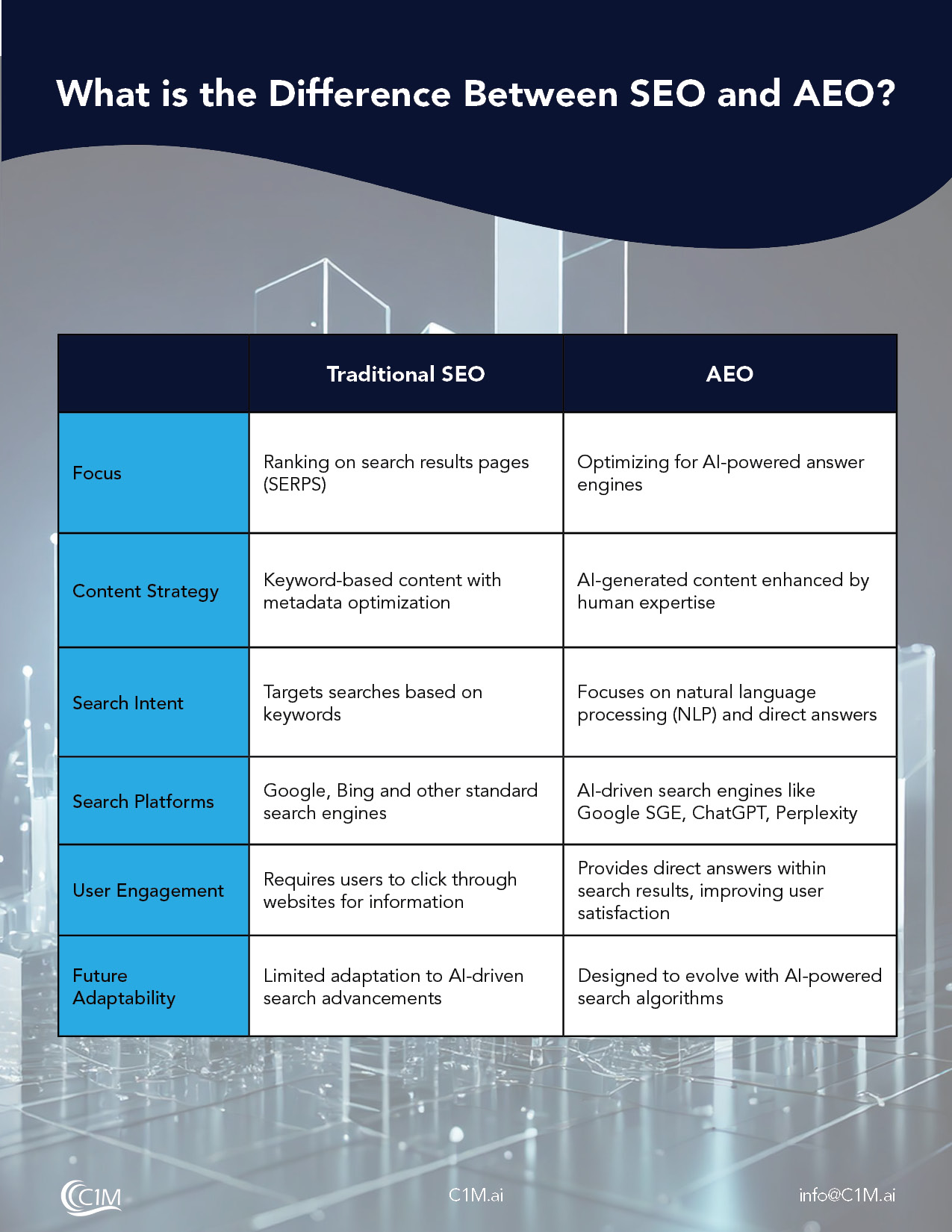
First there was Facebook. Then came a few other entrants into the social media scene. Now we have more social media platforms than you can count on your hands. They’re used by more than half the people on the planet, and they’re only growing in popularity.
That makes social media powerful for promoting your business – and also pretty confusing.
With all the different social media platforms out there, how can you come up with one unified strategy that works for your business? And how do you know what to post, and where to post it? There are just so many questions, and options, and new things to learn.
How can you ever find the time to figure it all out and set it all up effectively?
You need a plan.
Social media marketing might have started as a small add-on to a traditional marketing strategy. But in the past few years, social media marketing has become a must-have for pretty much every business out there. Getting the hang of social media marketing can seem like a mysterious process for many business owners – but don’t fear.
We’ve got the answers you need right here to sort out the confusion and get on the road to success.
What is Social Media Marketing?
Social media marketing is creating content for your business that you post on social media channels, like Instagram, Facebook, or X, to promote your brand. Marketing on these platforms can help you promote brand awareness and boost your conversion rate, when it’s used thoughtfully.
At its core, social media marketing is about connecting with your prospects and customers in an environment that prizes authenticity and engagement. Almost all of your target audience likely spends some time every week on social media. If your target consumer is younger, that time spent is probably every day. Social media marketing lets you speak to your ideal customer where he or she spends time naturally.
But it’s not a simple marketing medium to master. That’s because every social network is different – they have different audiences, goals, methods of engagement, and promotional opportunities. Your social media strategy needs to be tailored to each platform to get results – there’s no one-size-fits-all solution here.
How to Build Your Social Media Strategy
Every business’s social media strategy will look different. There’s no one path to success or strategy template in social media marketing. Actually, consumers have gotten quite wary of marketing in our advertising-saturated world, so creating anything cookie-cutter style is ineffective at best. Building the social media strategy that works for your business requires thoughtfulness and a targeted approach.
Set Your Social Media Goals
Most businesses don’t have great success on social media for one simple reason – they have no overall goal they want to achieve with their social media presence. They just set up an Instagram account or a Facebook page and wait to see what happens. And if there’s no goal? Then nothing big will happen.
Before you set up or refresh your social media brand presence, think about how it will align with your business goals. Do you want to build brand awareness – making more people aware of your company? Do you want to build relationships with existing customers and prospects? Or do you want to boost your conversion rate for your online business or services?
Each goal requires a different approach. And make sure your goals are both relevant and realistic. Get clear on your goals before you put time, effort, and money into creating your content.
Find Your Audience
On social media, it can seem likes getting the most followers is the goal – the brand with the biggest audience wins. But you don’t just want to amass the most followers to succeed. You need to be reaching your ideal customers, your target audience – the people who are most likely to actually purchase your product or service.
Once you know who your target audience is, you need to do some research on where they spend their social media time. You’re not going to reach many 20-somethings on LinkedIn, or many baby boomers on Snapchat. But one of the great benefits of social media is the specific data they have on their users – there’s a platform for every business.
As shown in this graphic, in 2019, 90.4% of Millennials, 77.5% of Generation X, and 48.2% of Baby Boomers were active social media users.[source]
You might think that a successful social media strategy means having a strong presence on most or all social media sites. But that’s a mistake – there are so many platforms, with such different audiences, that spreading your social media campaigns around too much will give you fewer results. It will also waste your valuable time. Pick the few sites that are most relevant to your target audience and stick to using them well.
Come Up with a Content Plan
Now that you have figured out your goals, your audience, and your networks, you can start planning your content creation. First, break out your digital marketing strategy. You want your social media posts and profiles to have the same look and feel as your website and other parts of your online presence. If everything looks different, consumers won’t recognize your brand as easily. And that recognition is critical for building brand awareness.
Next, what kinds of content resonate with your audience? What are they looking for – information, insider access, inspiration, an emotional connection? It can help to scout some of your competitors’ social sites for more information. Read on for much more detailed information about coming up with the best kinds of social media posts for your business, and how to develop your own posting strategy.
You can create content on your own, with the help of your marketing team or by yourself if you’re a small shop. Just make sure your images are clear and your content like captions and descriptions are error-free and professional. You can also use user-generated content – posts that your audience creates and shares with you using your handle or hashtag, that you then repost on your account with credit to them. This gets you free content creation and engages your most dedicated followers.
Promote Your Social Media Content
To maximize results, you should mix creating organic content with paying to promote posts. Social media advertising can help your brand get engagement and results even if you’re newer to the social media space. Without paid ads, it can be difficult to stand out from your competitors if you’re in a crowded industry. But think even more carefully about the goals for your paid content – you don’t want to waste money chasing vanity metrics that don’t actually help you achieve your business goals. Don’t spend money on Facebook advertising trying to get new followers when you really want to increase conversions.
But paying for ads isn’t the only way to increase your social media reach. You should also incorporate your social channels into your website and your content marketing. Adding social share buttons that make it easy for your audience to share content they found valuable with their own network increases your social reach, and it’s also beneficial for your organic search rankings.
Engage with Your Audience
Once your channels are set up and the content is flowing, your work isn’t done yet. To truly build the authentic relationships that social media is built upon, you have to continuously engage your viewers, customers, and fans. Be sure to build in a regular process to review your feeds for comments and questions, and respond in a timely fashion.
And don’t just stick to the main feed for interaction. Many platforms like Instagram and Facebook now allow multiple ways to engage with your audience, like posting more casual Stories that disappear in 24 hours. These can be great for a behind-the-scenes video or live updates.
Creating Strategic Social Media Posts
Now that you have your social media strategy planned out, you’ve done your big-picture thinking. You know what you’re using social media for, who you’re talking to, and how you’re setting and evaluating your goals.
But now the real challenge comes… what on earth are you going to post about?
You probably have a few initial ideas to fill in your content calendar. But looking ahead to the next few months, and years, seems intimidating – you just can’t think of enough to say to fill your feed with valuable content.
But you know you need to keep your feeds fresh and engaging. What do you need to know to make your social media marketing consistent with plenty of content for posting in the pipeline? Here’s everything you need to know about social media posting for your business.
Social Media Posting Strategy
The mistake most businesses make with their social media channels? They just create a profile on whatever site they’re most familiar with and start posting any kind of content that comes to mind, whether it’s relevant or not. To make the most impact with your social media posts, you want them to all align to your overall business and digital marketing goals.
That means deciding what you want to gain out of your social media presence. You could aim to increase your brand awareness, increase conversions, build relationships with customers, or promote your products. Decide before you start posting – don’t just start putting random content out there and hoping it works.
When you’re developing your social media strategy, you should think about your target audience. Where are they spending their time on social media? What kind of things do they like to look at, engage with, and share with their friends? What appeals to them and what irritates or bores them? This is also a good time to figure out the social media voice you would like to use. Is it business-like and professional, casual and chatty, or informational?
Consistency is Key
One of the biggest keys to success in social media is posting consistently. You want to have a steady stream of social media content to keep your audience engaged. If you have too much time in between posts, they will lose that sense of engagement quickly or get bored and move on.
But it’s easy to get behind in posting if you’re running your social media pages yourself. You’re a business owner – you’ve got plenty of things on your plate already. The best way to stay consistent? Start with social media design and placement. Then set up a social media posting calendar. Think of post ideas in advance – they could be seasonal or topical for your business, or just related to evergreen ideas – and put them into a spreadsheet to organize them.
Schedule Posts in Advance
You don’t just have to think of ideas for posts early – you can also schedule them to publish in advance. This is incredibly helpful because you can set aside an hour or two a week to create and set up your posts all at once. Scheduling social posts in advance can be done through products like HootSuite or similar schedulers. This can help you stick to a consistent posting schedule.
But remember that scheduling posts in advance doesn’t mean you only have to think about your social media channels once a week or less. You should still be checking them regularly to scan comments for any urgent issues and to respond to your audience.
Social Media Posts by Platform
A tricky element of social media posts is that every channel is quite different. What works on Instagram is very different from what works on X Here’s a basic rundown of what you should think about when you’re posting on each major platform.
Facebook has been around the longest of the social media sites – that’s why its audience skews older and more general. A mix of imagery and written content do well here. But it can be increasingly difficult to get your organic content in front of your audience as paid ads dominate.
Instagram is a visual platform, first and foremost. If you sell any products or services that have a visual component, you need to be here. And you need to have a beautiful set of images to share. With the grid layout of the feed, you should create a cohesive look and feel for your posts to strengthen your brand image and awareness.
Unlike all the other social channels, LinkedIn is all business, all the time. If you’re a B2B company or offer professional services, you need to be on here sharing content. Images are nice here, but quality content is key, as is a professional tone. You can share your blog posts from your content marketing easily here if the content is relevant, giving you extra airtime for your blog.
YouTube
Video content is a stealthy but steadily growing piece of the social media world. In fact, YouTube now is second only to Google in the amount of searches performed daily. Creating videos can be a great addition to your content marketing strategy and YouTube is a great place to share them. You can create how-to videos about your industry, behind-the-scenes peeks at your business, or other engaging content.
X
X can be tricky to master – it’s all about the words. But it can be a great place to share your blog content and network with others in your industry. Keep it short, sweet, and interesting.
Other Sites
There are far more social media sites than we can cover here, and new ones pop up seemingly every week. These are usually either more focused on a specific niche or used by the very youngest cohort of consumers. If that’s your target customer, then you should make an effort to stay up to date on the newest trends. But if your customers aren’t under age 25, you likely don’t need to worry about Snapchat, TikTok, and the like. Your customers probably aren’t there.
Social Media Post Ideas
Now that you have your strategy and your platforms, it’s time to start creating your posts. Thinking about all the content you have to create can be overwhelming. But really, you don’t have to go too far for inspiration for content ideas.
Existing Content
Your business might have piles of existing content you can use already. Are you writing regular blog posts as part of your content marketing plan? You can repost links to those blogs on channels like LinkedIn, Facebook, and X. Do you have plenty of product images from previous shoots or catalogs? Post those on your Instagram with a thoughtful caption.
Reusing the content you already have isn’t just saving you time on content creation – it’s also expanding the reach of your content. X and Facebook have different audiences, so sharing a blog post to both isn’t lazy. It’s smart to get the most eyeballs on the content you’ve already worked hard or paid money to produce.
Seasonal Themes
We’re not just talking about holidays here. There are seasonal angles to many businesses. Feature shots of your ice cream parlor in the summer sun on your Instagram, or shoot a quick fall video talking about sweater weather for your apparel company. But holidays are great opportunities for content too – don’t miss out on holiday shopping ideas or summer vacation content.
User-Generated Content
The power of social media lies in the direct engagement and conversations with your audience. That can mean creating content for them – or them creating content on their own around your brand. Pick a relevant hashtag and ask your users to share how your product relates to their lives. Then, with permission and credit, feature their posts or images on your feed. It provides excitement for the featured poster and gives you authentic content you don’t have to spend hours creating.
Behind-the-Scenes Glimpses
If you have an unusual product or an interesting production method or a cool office, a glimpse behind the scenes can be great content. Interview employees for short videos on Instagram or Facebook, or do a tour of your office. Show your audience how your product gets made. Share engaging stories from your industry or insights from your years in business.
Guidelines for Business Success
Developing and sharing social media posts that connect with your audience looks a little different for every company. But there are a few guidelines every business should follow to thrive on social media.
Keep it Professional
Social media can seem like a casual and cool atmosphere. And it’s not a mistake to write content or develop posts with a casual tone, if it works for your industry. You don’t have to wear a suit in your YouTube videos. But you should always keep in mind that there’s a line between the personal and professional, and err on the side of caution. Since it’s so easy to share content on social media, one gaffe can blow up into a big issue even if your following is relatively small.
Keep it High Quality
You don’t need to spend big marketing bucks to have a compelling social media presence. But you do need to make sure your posts are grammatically correct and free of errors, and your images and videos are high-quality. With the excellent cameras on smartphones these days, that doesn’t mean spending thousands of dollars on equipment. But it will make your small business look like big bucks.
When You Need Social Media Strategy Expertise
Social media marketing can yield huge rewards for your business – if you know how to use it right. But as a business owner, you already have a lot of hats to wear. And social media guru might not be one you can take on right now – do you really have the time to create new posts regularly, engage your followers, and monitor your results often enough to make your strategy effective?
That’s when you need to call the marketing experts at C1M. We’ll build a complete digital marketing plan, including the social media strategy and posting plan you need, that works for your unique business. Schedule your free business review today and find out how we can grow your business for the future together.
On-Page SEO
Using Industry-leading tools and proprietary systems, we quickly identify your site’s optimization issues with a technical SEO audit. These include: duplicate content, title tags and meta tags; “thin” or low content levels on site pages; broken links; page speed issues, SSL/HTTPS implementation, missing title and meta tags, missing or poorly written headers, image alt tags, nofollow attributes, crawlability, content rendering, AMP configuration, and more.
Local Search Engine Optimization
We’ll target your customers and prospects with local specific keywords, increasing your visibility and driving traffic. We focus on both organic search results and map pack listings.
Tracking, Analytics, and Reporting
We often hear nightmare stories from clients about SEO companies “not doing anything.” We actually want you to know what’s going on with your project so that you can help provide information and be confident about our work!
Call Tracking
With call tracking and A/B testing, we’ll know where visitors came from, what search terms they used, and what’s converting visitors to customers. This is an essential tool for conversion optimization.
Monthly Report
Each month, your project manager will produce a report and discuss it with you. The report details analytics, completed work, and upcoming plans. The PM may also make suggestions on strategy and program adjustments as needed.
Website Traffic Reports
We can provide an on-demand, customized dashboard depending on your needs. Your monthly project manager conversation will ensure that we’re on the same page.
Create a Winning Social Media Strategy with C1M
Mastering social media isn’t just about being online—it’s about being intentional, strategic, and consistent. The right approach can amplify your brand, build lasting connections, and drive real business results. But if managing your social media feels like one more thing on an already full plate, you don’t have to go it alone.
When you need social media strategy expertise, C1M is here!
Let’s craft a smarter digital presence!
Let’s grow your brand, one strategic post at a time.







